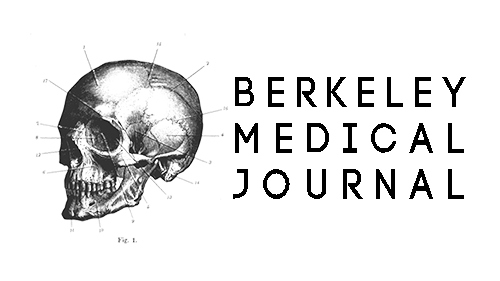By Srijani SarkarStep into the world of “Orange is the New Black,” a cult favorite show where the complexities of life in an all women’s prison unfold before our eyes. While the show does a great job of combining drama, humor, and advocacy, it barely scratched the surface of the intricate healthcare issues faced by incarcerated individuals. Beyond the gripping drama of prison narratives lies a serious concern that often goes unnoticed – the dire state of healthcare within prison walls. Recent research has unveiled a particularly distressing facet of this issue, shedding light on the inadequate care and neglect faced by women navigating menopause, pregnancy, menstruation, and a myriad of other healthcare challenges behind bars. As we delve into historical and current events regarding women’s prison healthcare, we uncover the harsh realities that incarcerated women endure and the urgent need for a transformative approach to healthcare within correctional facilities.
Going through menopause is challenging under any circumstances, but for women within the prison system, the journey is marked by unique afflictions. A recent literature review, presented at the 2023 Menopause Meeting of the North American Menopause Society, suggests that menopausal care in prisons and jails is severely lacking. The number of incarcerated women has skyrocketed by 525% from 1980 to 2021, reaching 168,449 individuals. Shockingly, correctional facilities have failed to address the specific needs of incarcerated women, as highlighted by a 2020 report from the United States Commission on Civil Rights. Former New Jersey Governor Jim McGreevey, co-author of the literature review, expressed concern over the dismissive attitude toward menopausal discomfort in correctional establishments. The study delvesstudy, delves into the experiences of 3140 participants with a mean age of 68. It reveals a significant decline in working memory and executive function in older individuals during the first two years of the COVID-19 pandemic, emphasizing the broader health consequences of crises on vulnerable populations.
The challenges within the prison environment extend beyond menopause to encompass various aspects of women’s health. Pregnancy, for instance, presents a complex set of issues. Research indicates that pregnant women in prisons often lack adequate prenatal care, face increased health risks, and may even endure unsafe conditions during childbirth. For pregnant women behind bars, access to proper prenatal care is often limited. The prison environment may not provide the necessary resources and facilities for adequate prenatal care, increasing health risks for both mother and child. Childbirth conditions within prisons can also be suboptimal, lacking the necessary medical facilities and a supportive atmosphere for labor and delivery. Following childbirth, women in prison may face challenges in receiving adequate postpartum care. This includes access to necessary medications, mental health support for those experiencing postpartum depression, and resources for managing the demands of caring for a newborn within the confines of the prison environment. The system’s failure to prioritize the health and well-being of pregnant women within its confines raises alarming questions about the overall quality of healthcare behind bars. Dr. Juana Hutchinson-Colas of Robert Wood Johnson University Hospital questions whether a prevailing mindset among clinicians and prison administrators suggests that incarcerated individuals do not deserve care beyond treating chronic conditions.
Women experiencing menopause behind bars face a myriad of challenges beyond the physical symptoms. Mental health issues often worsen during this mid-life transition, amplifying conditions like schizophrenia-spectrum disorders, posttraumatic stress disorder, and depression. Unfortunately, the prison environment, already far from conducive to mental well-being, exacerbates these challenges. The impact of menopause on mental health is frequently unrecognized, leading to insufficient treatment and a lack of access to necessary medications. Shame plays a significant role in inhibiting women from discussing symptoms like incontinence or hot flashes due to the stigma associated with aging. Dr. Gloria Bachmann, Medical Director at New Jersey Re-Entry Corporation and co-author of the literature review, emphasizes the need for clinicians to reassure incarcerated women that what they are experiencing is normal. This reassurance not only addresses the symptoms but also alleviates the shame that may prevent women from seeking help.
Limited access to comprehensive sexual and reproductive health education in prison contributes to a lack of awareness among incarcerated women. This lack of education can result in misconceptions about reproductive health, family planning, and sexually transmitted infections. Routine gynecological care, including screenings for cervical and breast cancer, may be limited or inadequate in prison settings. Women may face delays in obtaining necessary examinations, leading to potential health risks going unnoticed or untreated. Beyond menstruation-related challenges, access to basic menstrual hygiene products can be a significant issue. In some instances, women may have limited access to sanitary pads or tampons– multiple episodes of Orange is the New Black show women choosing to buy food over necessary period care or keeping tampons inserted for days at a time, an unhygienic practice that leaves them vulnerable to deadly infections such as Toxic Shock Syndrome (TSS).
The dire situation extends beyond symptom management, with access to basic necessities such as menstrual pads being a challenge for women who have been or are at risk of incarceration. The lack of reliable water temperature control in showers and inadequate access to simple comforts like fans or ice adds to the overall discomfort. Dr. Juana Hutchinson-Colas of Robert Wood Johnson University Hospital questions whether a prevailing mindset among clinicians and prison administrators suggests that incarcerated individuals do not deserve care beyond treating chronic conditions. In conclusion, the healthcare crisis within prisons, particularly for women navigating menopause, pregnancy, menstruation, and a myriad of other challenges, demands urgent attention and systemic changes. Advocates like former Governor Jim McGreevey stress the importance of understanding the unique demands and circumstances of incarcerated women. As we strive for justice and fairness in our society, ensuring comprehensive healthcare for all, regardless of their circumstances, should be at the forefront of our efforts. The experiences of incarcerated women serve as a stark reminder that addressing the healthcare crisis in prisons is not just a matter of policy; it is a fundamental issue of human rights and dignity.



